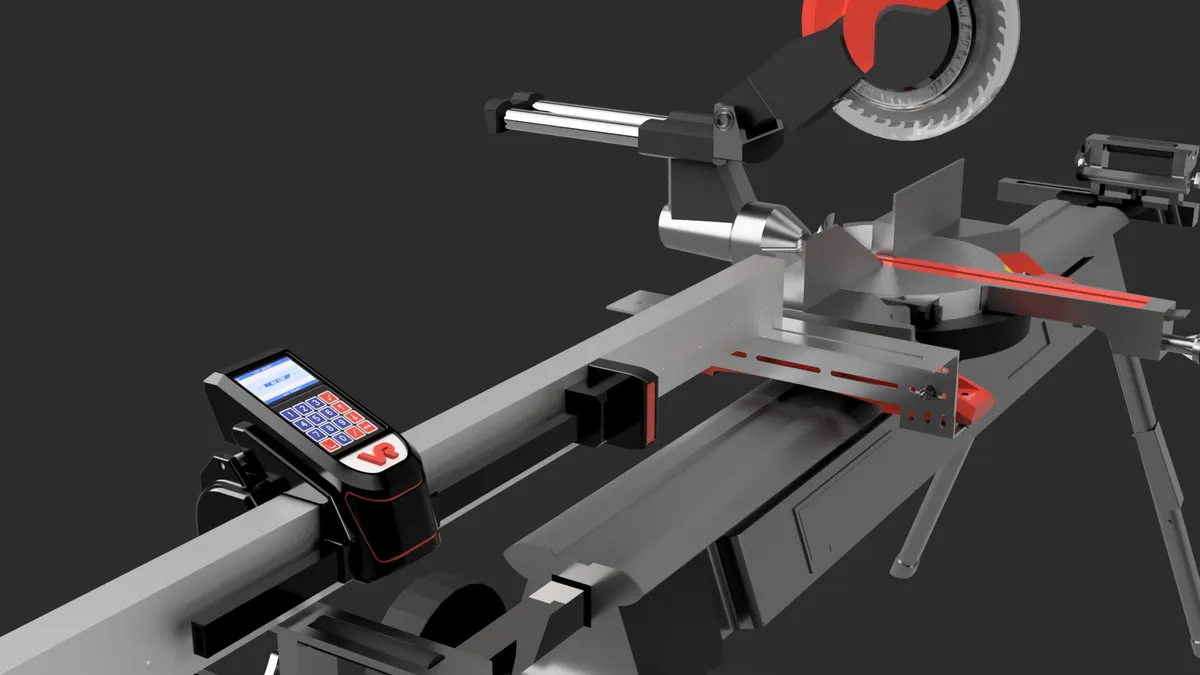Dive Brief:
- The winner of the Mid-Atlantic Regional Competition of AlphaLab Gear's Hardware Cup could soon change the way lumber is cut on construction projects, according to The Tribune-Review.
- Velocity Robotics' Autoset accessory, which a user will be able to attach to a miter saw bench, feeds digital measurements to a stopper. The stopper indicates which way it must be moved to achieve the precise measurement and then adjusts for it. Users can feed several sets of measurements into the stopper, eliminating the need for crews to make mental notes, eradicating logjams at the saw, and saving up to three days on a five- to six-week schedule.
- Velocity Robotics officials said Autoset's accuracy is to one-sixty-fourth of an inch but added that the firm is working on a potential upgrade to increase accuracy to one-one-thousandth of an inch. Company officials said the product could be ready to go to market in a year.
Dive Insight:
The Autoset accessory is just the latest construction industry robotics play with the potential to increase productivity in the field.
For example, in October, the Pittsburgh Post-Gazette reported that a collaboration between the CEO of a Pennsylvania construction company and a robotics researcher had resulted in a robotic arm that can tie bridge deck rebar. The Tybot can be used with just one supervising worker, and is able to perform work in half the time that it typically takes human crews. The arm is also expected to reduce accidents that tend to happen when straddling rebar frames.
Built Robotics also revealed an autonomous track loader late last year. The self-driving tractor can perform excavation work for foundations 24 hours a day.
While these technology advances are good for an owner's, developer's or general contractor's bottom line, they could negatively affect construction jobs. A research report released last year found that automation could cost the United Kingdom about 600,000 workers by the year 2040. Given the advances in bricklaying automation, that trade is expected to be particularly hard hit. However, by increasing productivity, research firm Mace said that the U.K. economy overall would benefit by £25 billion.
Automation could help ease the construction industry workforce shortage in the the United States and other countries. Still, demand for skilled workers is expected to increase through 2030, and study authors Pearson, Nesta and Oxford University suggested that the industry focus its training efforts on trades that cannot be automated.











